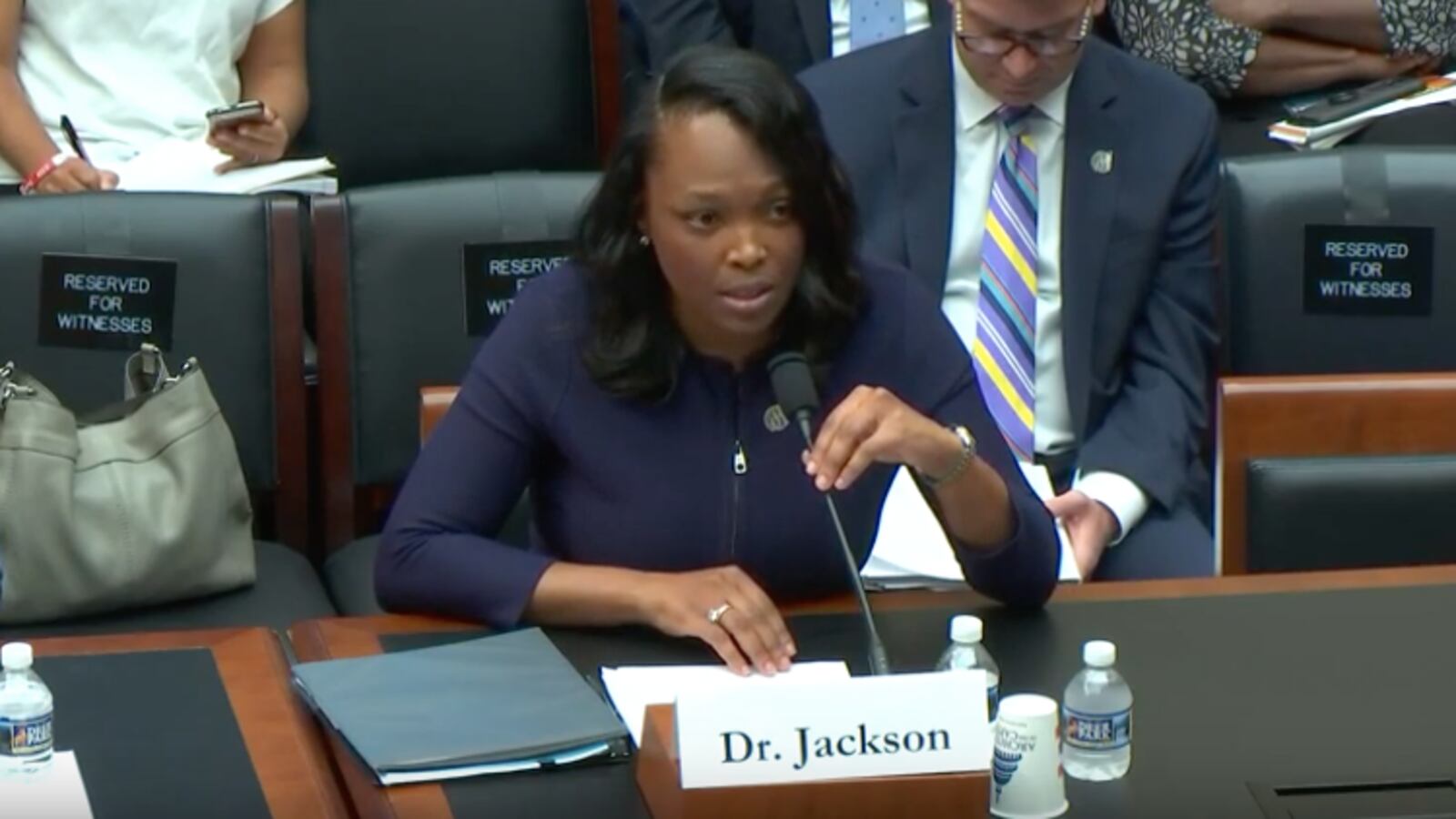Chicago schools chief Janice Jackson traveled to Washington, D.C., Wednesday to deliver a testimony to a House committee about the district’s struggle against forces like poverty and gun violence that affect how students learn and behave in the classroom.
She began with the story of two students she’d spoken to, “who live in a world where trust is scarce and anger is overly abundant.”
“They described their communities in their own words as places where no one can be trusted,” she said. “For these children, navigating violence and poverty is a way of life.”
Jackson, whose national profile has been rising, was one of four public officials who spoke Wednesday before the U.S. House Early Childhood, Elementary and Secondary Education Subcommittee. The hearing focused on practices that educators are using to support students affected by gun violence and other traumatic experiences.
The latest police statistics show Chicago crime is down compared with last year, including shootings and murders. But despite the trend, violence still wracks the lives of many Chicagoans, especially youth.
Mayor Lori Lightfoot has spent much of her first 100 or so days in office trying to get a handle on the problem, while teachers continue to wrestle with how to approach the subject in their classrooms (read one educator’s first-person account here). Jackson called on Capitol Hill to step up and provide more financial support to Chicago and other districts working to address childhood trauma.
“Only when our country’s leaders unite behind this call can the range of quality treatment services for these students began to fully meet their needs and put them on the road to recovery and a productive and fulfilling life,” she said.

Jackson made the point, as did other speakers, that children exposed to trauma are at higher risk of lower grades, poor attendance, behavior problems, and dropping out. Trauma can also trigger mental health issues and substance abuse, she said.
Jackson touted several tools the district is using to support students, including the Summer for Change program. The six-week program provided 430 youth “at risk for being impacted by violence” with trauma-informed therapy, mentoring, and enrichment opportunities. (Chalkbeat visited the program in its final week. You can find our dispatch here.)
She told the subcommittee about the district’s focus on social and emotional learning, targeted interventions for students coping with anxiety and depression, and “discipline practices that are moving us away from suspensions and expulsions and toward uncovering the root cause of negative behavior while keeping kids in school where they belong.”
Also on the panel were California Surgeon General Nadine Burke Harris, Oklahoma state schools Superintendent Joy Hofmeister, and Ingrida Barker, associate superintendent of McDowell County Schools in Welch, West Virginia.

